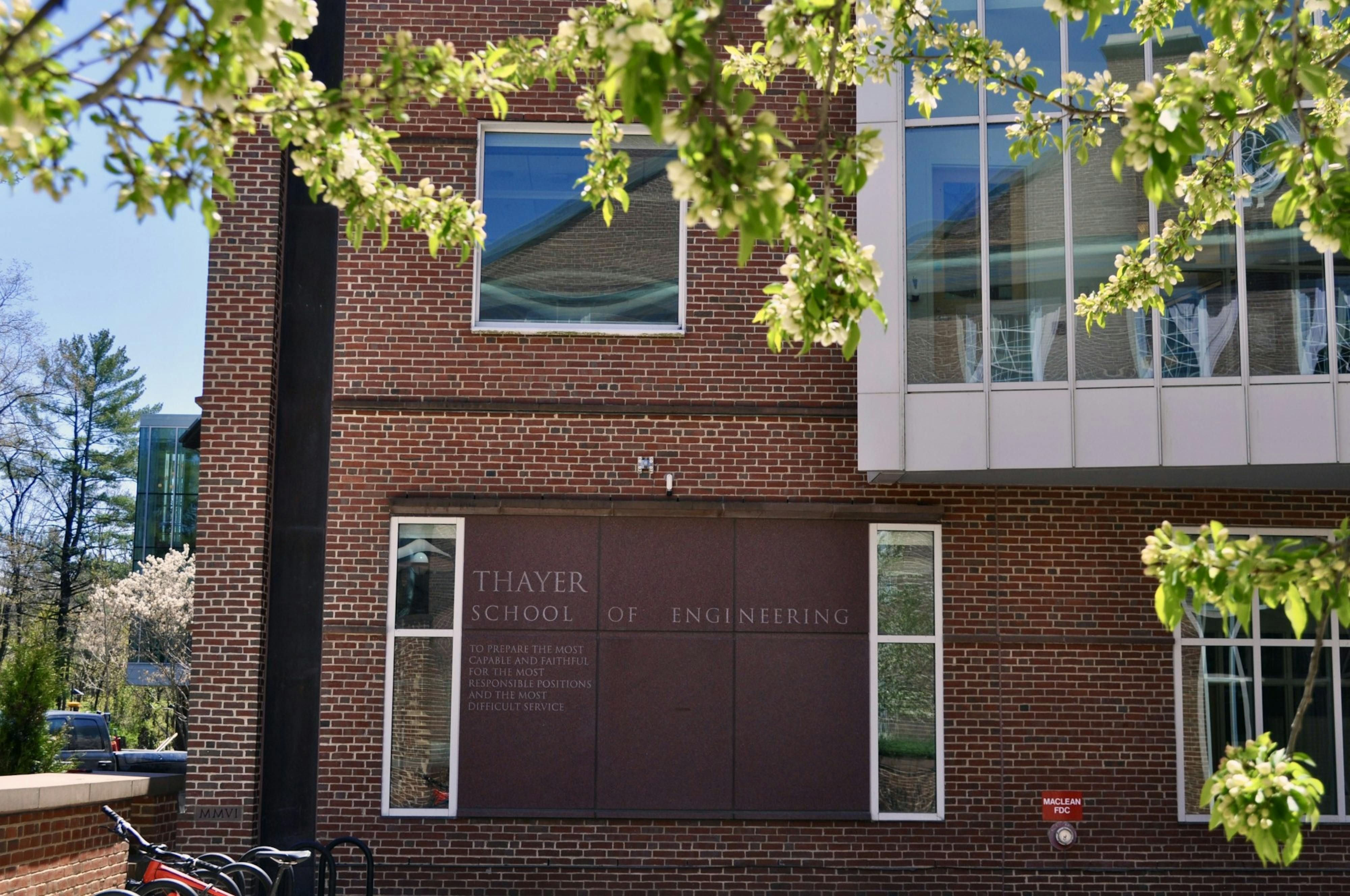Thayer will introduce a fully online computer engineering master’s program in an attempt to enhance accessibility.

In collaboration with the online course provider Coursera, the Thayer School of Engineering recently unveiled its fully-online computer engineering master’s — or MEng:CE for short — program, which is the Ivy-League’s first online degree in the computer science engineering field.
Dartmouth currently offers two hybrid Master’s programs: one in health care delivery science offered through The Dartmouth Institute for Health Policy and Clinical Practice, as well as a public health degree from the Tuck School of Business and TDI. Under the dual leadership of Dean of Thayer Alexis Abramson and Coursera’s chief content officer Marni Baker Stein, the College now hopes to provide a personalized engineering education to a broader cohort of students.
“[Students will] work together to tackle a problem,” Abramson said. “Looking at, for example, designing a new approach using the information you’re learning in your signal processing class or in your machine learning class to design a new app … We’re bringing those different project opportunities to the online world.”
Dartmouth follows several other institutions in developing digital degree programs. The University of California, Berkeley launched its advanced study in engineering master’s on Coursera earlier this month, and the University of Texas partnered with Coursera in August to offer industry-recognized micro-credentials — or professional certifications that are not full degrees — to all alumni, faculty and students within the UT network.
According to Thayer’s online press release, the online MEng program will provide the same curriculum as the on-campus version, with admissions requirements remaining consistent across both formats.
In the same way that on-campus students are able to participate in office hours, online students will also have access to virtual office hours and engage in real-time course content discussion with faculty, Abramson said.
Despite their similarities, the two programs differ in terms of cost. While the on-campus program costs $63,684, its online counterpart currently costs $44,000 for eight courses. Students enrolled in the online MEng:CE can also pay as they go through their master’s, meaning each class has a direct cost.
Trinidad and Tobago native David Kit Th’24 is currently enrolled in an in-person MEng in Energy Engineering at Thayer, and noted that online programs could make education more accessible to international students.
“Some kids aren’t allowed to leave their homes for personal or domestic reasons,” Kit said. “So in Trinidad, the only option they have to achieve tertiary education is local university, which is obviously no comparison to Dartmouth. Imagine if you could attend Dartmouth and have access to these lectures and make potential connections with people that are leading their field and research.”
However, an online education still fails at fully replicating “the experience of hanging out with friends” or “shaking the lecturer’s hand,” Kit added.
Professor Eugene Santos Jr., the faculty director for the MEng program, agreed that an online engineering degree will help address accessibility concerns while expanding the much-needed talent pool in the engineering, science and technology fields.
“A fully online degree increases accessibility to Dartmouth’s special approach to [extend] engineering to more people — people with great potential to succeed in this realm, but likely ruled out applying to the on-campus program because of distance, full-time jobs or family responsibilities,” Santos wrote in an email statement.
The market demand for engineers is on the rise, and improving access to higher education can play a pivotal role in addressing this gap. The Semiconductor Industry Association notes that the U.S. will need 418,000 engineers by 2030. With the enactment of the CHIPS Act of 2022 — which stands for Creating Helpful Incentives to Produce Semiconductors — the semiconductor industry is poised to face an acute labor shortage: approximately 67,000 unfilled jobs by 2030, of which 26% are assumed to be master’s level engineers.
Thayer boasts an impressive track record, with nearly 100% of its master’s and Ph.D. graduates securing employment within six months of graduation, often with a starting salary of $123,600. More than 25% of graduates progress to C-suite positions within five to 10 years, and many go on to become leaders at global companies, according to Thayer’s “graduate outcomes” page on its website.
Emphasizing Thayer’s commitment towards delivering educational opportunities to a global network of scholars, Abramson shared the driving force behind the initiative.
“We believe really strongly in the educational product that we offer, and we just wanted to find a way to offer that to parts of the world that wouldn’t come find us for their Master’s degree,” Abramson said. “So that was really important to us and really kind of stayed true throughout the whole design of the program.”
Credit: Source link
